7 min read
How thick is underfloor heating?
When looking into installing underfloor heating, ‘how thick is underfloor heating?’ ranks in the top three of the most common questions asked. There...
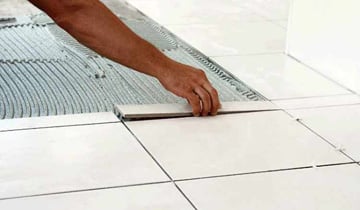
Questions regarding underfloor heating and floor height are some of the most common questions we get asked. So, we’ve decided to tackle this head on. In this article we will break some myths surrounding electric underfloor heating and floor height. We’ll also walk you through key considerations and options when selecting which electric underfloor system is right for your project.
When it comes to choosing an underfloor heating system there are two main types. Water-based heating systems (hydronic) and electric heating systems (read ‘Electric vs Wet Underfloor Heating – The Battle’ for a detailed comparison of the two). The heating component of both systems doesn’t add much to the total height of the floor, it is the installation process used for your chosen underfloor heating system. For example, the thickness of insulation.
Water-based systems are more commonly used in new build projects and the pipework is embedded in a thick layer of screed. The heated part of the system (the pipework) in much thicker than its electric counterpart. However, because this system is used more in new builds or extensions, the height of the installation can be accounted for in the design and planning stage prior to any building work commencing. Outside of this, installing wet underfloor heating can raise floor height by over 15cm.
Electric underfloor heating systems are thinner than water-based systems and have much less impact on height build-up. ThermoSphere Mesh is only 3.5mm thick. It also comes with a cold tail which is only 4mm thick and can easily be concealed within the tile adhesive layer. There are also options such as our new self-adhesive Membrane which doesn’t require a layer of tile adhesive to stick it to the substrate which further reduces the height build-up.
Insulation is a key part of any underfloor heating installation because going without it will mean that your electric underfloor heating system will be far less efficient because heat will be lost through the substrate. Including insulation means that the heat that the system generates and you pay for reflects upwards and heats the room to your desired temperature faster. ThermoSphere coated insulation boards are available from a thickness of 6mm to 50mm and are the perfect option for timber floor substrates. ThermoSphere uncoated insulation boards are ideal for concrete substrate floors and are available in a thickness of 6mm and 10.5mm. The thicker the insulation board, the more efficient your electric underfloor heating system will be.
Electric underfloor heating can easily be fitted to the existing sub-floor without the need to dig out more depth. Because the ceiling height is already fixed minimal height build-up is needed without compromising efficiency of the installation. Examples of retrofit projects include; conservatories, bathroom renovations and wet rooms.
Concrete substrate
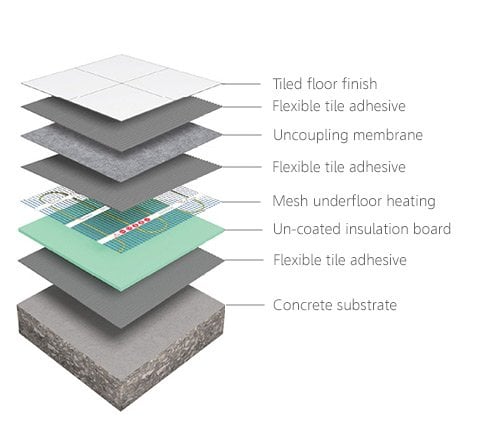
Timber substrate
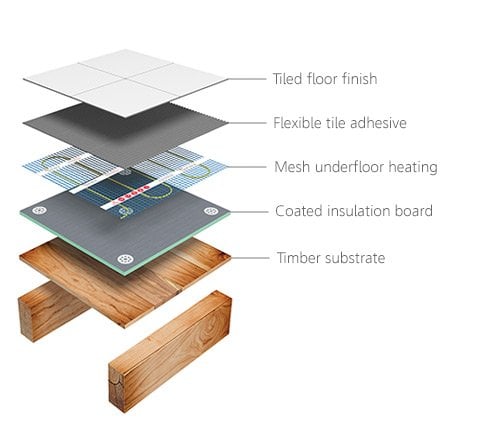
Timber substrate
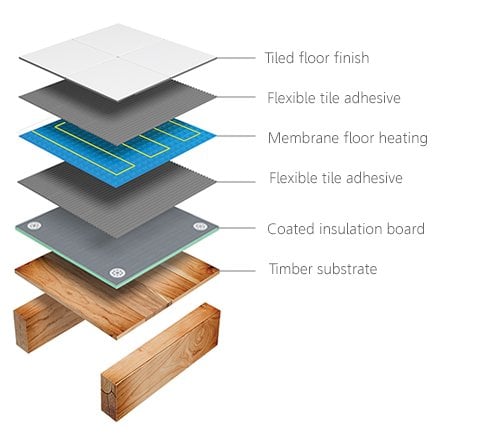
Timber substrate
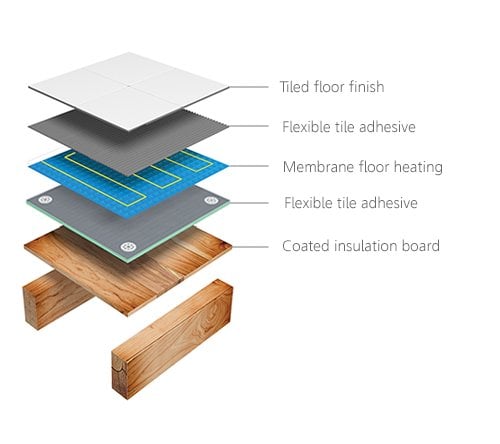
Timber Substrate
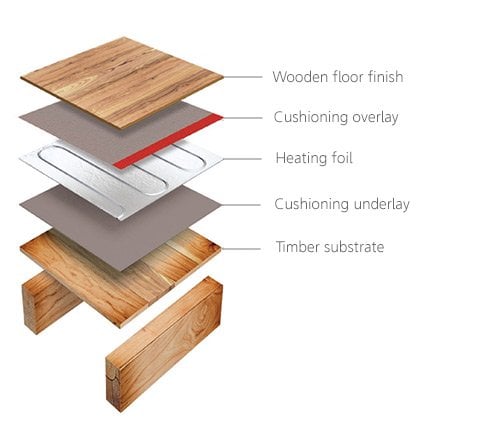
Concrete substrate
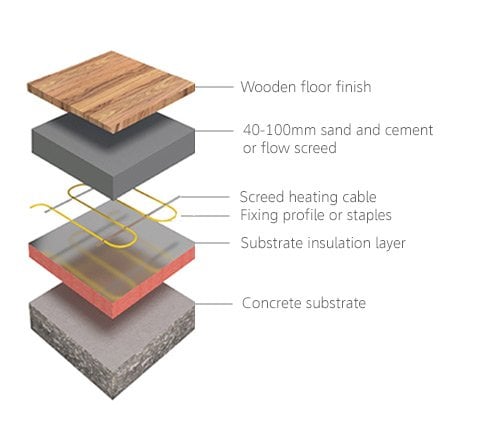
What do you think? If you have any questions regarding underfloor heating and floor height or anything else about electric underfloor heating, contact one of the ThermoSphere team.
Complete the short form and you'll receive a fast quote turnaround time along with the right product details for your property or project.
Need it even quicker? Call our HQ and one of the team will be happy to help on 0800 019 5899.

7 min read
When looking into installing underfloor heating, ‘how thick is underfloor heating?’ ranks in the top three of the most common questions asked. There...
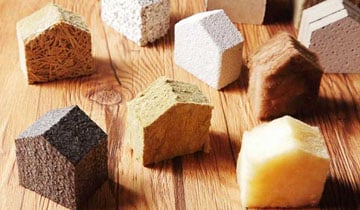
5 min read
I recently asked our wonderful Customer Experience team what were the typical questions asked byhomeownerswhen they called us. Unsurprisingly, one...

2 min read
When installing ThermoSphere electric underfloor heating using insulation board will minimise downward heat loss and maximise the efficiency of your...